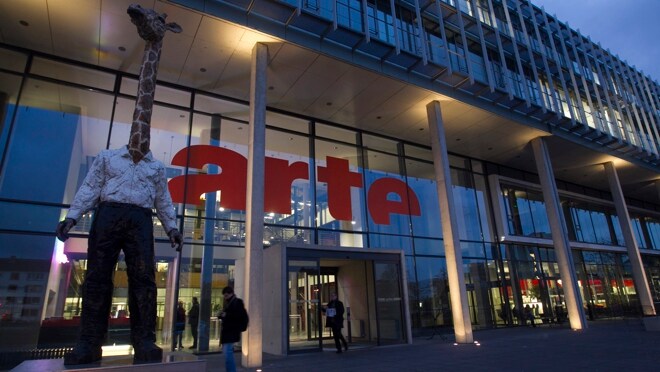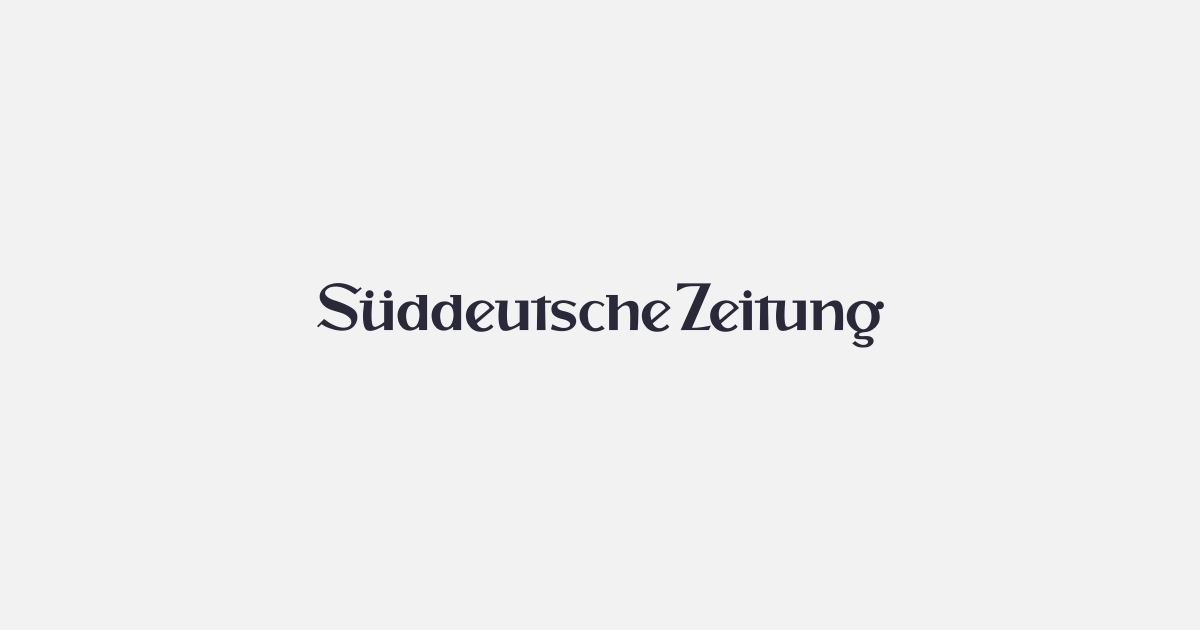Keep
Account Bruno Patino, president of the channel
Art for almost a year, that originally his surname had an eñe, a letter so Spanish in the heart of Franco-German culture. His father was a conductor in Bolivia, but in France they have called him ‘Patino’ for so long that he has stayed that way. Born in 1965 in Courbevoie, close to Paris, the manager is a dreamer determined to square the circle: in his books he warns of our dependence on the screens, but his job is to gain an audience for a television station, also present on the internet and the social media. “There is a paradoxical side,” he admits, “but not that strong.” “Actually, since I’ve been working in the media, I modestly try that we all have a normal relationship with the screens, always from the media that develop offers of emancipation and not addiction.
In Arte, a chain that is broadcast in six languages, including Spanish, the main purpose is not to be the intellectual stronghold of a minority, perhaps another chimera. «Culture and great documentaries must be accessible and shared. Our obsession, even if the word is strong, is that the channel is for everyone. Culture is for everyone. Great movies and documentaries explain the world we live in. We have that obsession, from the editorial point of view, of no show is too cryptic and that technologically we are present in all media of audiovisual consumption ».
In the Art programming there is even a lack of comedy shows, such as one entitled
‘Humor viral’, which includes jokes about the coronavirus. Are they concessions for the general public? Could they even premiere a reality show, even if it is literary? Patino denies up to three times: «No, no, no. We are always going to be a cultural chain, of great documentaries, so we will never do ‘reality shows’ or broadcasts of opinion shocks. The purpose is not this. When I say that everything must be accessible, it means that there are a thousand ways to talk about culture and present it, and we try to be generous so that this cultural and documentary field is accessible. That does not mean at all a change in identity or in the vision of the world that we have. I always tell documentary teams that we have to do what we can to make the complexity of the world accessible to everyone. Our thing is not to escape complexity, but to do the necessary work so that everyone understands it».
How does the public respond, in Spain and in other countries? In Spain we have a good offer, but we must increase its weight, the number of programs. We will do it very soon, with a YouTube channel of great documentaries, and we will continue to increase the offer day by day. In France, the results are spectacular. Of the three channels we have, on the shelf the audience has increased by 30% in three years, on the digital platform it has increased by 60% in one year and on social networks it has doubled in the last twelve months. This shows that when you bring culture and quality, the public responds.
Are we Spaniards a particularly difficult or lost case? “No not at all. Like every European town, Spain has its specificitiesBut no people, not the French or the German, are hopeless or hopeless cases. Neither do the Spanish. The results we have in Spain are very good and I am absolutely sure that the possibility of development in Spain is very strong for the cultural offer that Arte proposes ».

Art is a free channel It is financed “with public funds, both French and German, and also has a little additional funding that comes from the European Union, which partly explains its continental development.” Indeed, is broadcast in six languages: Spanish, Italian, Polish and English, as well as French and German. “This allows us to be present in countries like Belgium, Switzerland and Austria, which are French or German. For the moment, the most immediate project is to significantly increase the offer in the countries or languages mentioned, rather than going to additional territories, ”explains Patino. “Of course, the objective is to be present throughout the European continent, but in one or two years I would say that our goal is to significantly increase the offer in all six languages.”
The effects of Brexit
Bruno Patino is reluctant to qualify Brexit as a coup. «It has surely had many consequences, not all of the same nature. We had many joint projects with the BBCLinks that still exist but we do not know so much if they will change. Our relationship with a chain in Ireland will continue. Another thing is that Brexit has again provoked strong interest in Europe, as a counter reaction. This has given a new ambition or energy to the European project, where Art is very present. To sum up, for us, Brexit has increased the speed or the ambition of our European project. ‘
Patino’s professional past also deserves a foray, after helping with the newspaper’s digital transition ‘The world’ and from the public chain France TV. «This moment is very interesting. I started working on the digitization of the press 22 or 23 years ago and I think we live in a time when two native elements of digital journalism are changing. The first is the resumption of somewhat long formats in the digital realm. The cartoon suggested that when doing digital journalism it should be short and for immediate consumption. We see that High-value journalism is re-emphasized. This brings complexity and richness back to digital journalism. At the same time, the advertising economic model has become a minority compared to the subscription model, which is very complex and difficult to develop, but when you do it well, it allows a strong development of information.
In this time of excess supply, not only informative, will we learn to manage ourselves as readers and viewers? ‘The expression he uses is very good. We have to learn to manage this obesity of the supply information, culture, etc. My generation had to wait for the film to hit theaters and then for it to be broadcast on television two years later. Now we all have immediate access to everything, of all time and of all types of quality, the biggest and the worst. All of that is mixed up, actually. The education we have to offer today is how to handle that permanent glut. But I am not pessimistic. I think that little by little, both individuals and societies and public authorities are learning to develop tools to handle this excess.
See them
comments


